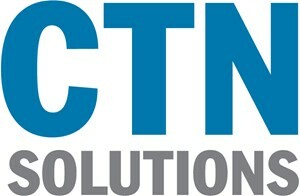 Technology changes constantly, and as such it can be difficult to change and adapt to new trends in the industry. Cloud services are making the implementation of scalable solutions somewhat easier, but often times integrating cloud solutions is forgotten by business owners who don’t really know what the cloud can offer their organization.
Technology changes constantly, and as such it can be difficult to change and adapt to new trends in the industry. Cloud services are making the implementation of scalable solutions somewhat easier, but often times integrating cloud solutions is forgotten by business owners who don’t really know what the cloud can offer their organization.
While most businesses have heard of the public and private cloud, they need to understand that the primary difference between the two is the amount of control is allowed over the user’s hosted data. The public cloud is generally managed by a vendor, which is perfect for a hands-off approach to cloud computing. On the other hand is the private cloud, which is hosted in-house on your own hardware, which demands constant maintenance and management. Today, we’re going to take a look at the hybrid cloud and all of the benefits it can bring to your business.
About the Hybrid Cloud
Essentially, the hybrid cloud is a combination of the public and private clouds, taking all of their best features to create a dynamic environment that’s scalable to meet the specific needs of your business. Most business owners who opt to take advantage of the public cloud do so because they don’t want to deal with the responsibility of cloud solution upkeep, while private cloud enthusiasts will likely use a private cloud because they want to be in full control of their data. Hybrid cloud solutions appeal to both of these users by combining the ease-of-use of the public cloud with the administrator privileges and data control that come with the private cloud.
What a Hybrid Cloud Can Offer
According to Forbes, your IT budget will usually be comprised of several different variables. One of these factors is your operational expenses, which are the costs allocated toward ensuring your organization functions without a hitch. Your operational expenses generally account for well over half of your IT budget, and don’t normally have any direct impact on your profit margin. Other parts of your expenditure include your ability to grow through use of new applications and productivity best practices, as well as taking advantage of analytics that allow your business to cater to new markets. While these later two have the potential to be exceptionally helpful for your organization’s profit margin, organizations don’t typically spend more than a combined third of their budget on these important aspects.
The most notable trend from these observations is that businesses are spending money on an aspect of their IT infrastructure which doesn’t generate any profits; rather, their operational expenses are being used to ensure that they can continue to maintain the same level of success that they’ve been experiencing. This stagnation of progress is a primary reason why organizations are pushing toward the hybrid cloud and managed IT services. Businesses need to find a way to minimize their operational expenses, and managed service providers are the key to doing so. When we’re talking about managed services, we mean the idea of outsourcing certain operations, like email hosting or technology maintenance, to a third party. This frees up an asset that’s surprisingly limited in nature: time. Instead of having to deal with technology issues personally, you’re instead allowing your staff to get more done throughout their workday and push toward greater heights.
Hybrid clouds are maintained by your managed service provider, meaning that you won’t have to deal with the upkeep of the solution. Instead, all you need to focus on is making sure that your business is as successful as possible. You can also move other technologies, like your desktop infrastructure or your servers, to the cloud, which saves you even more operational costs like electricity. In fact, the hybrid cloud holds a particular benefit for your business that is hard to match; it provides the ability to deploy and manage new software solutions to any amount of employees with ease, allowing you to “test the waters,” so to speak, before diving head-first into unknown territory. This saves the time and effort it takes to install each instance of the software onto all machines in your office.
When it comes to the cloud, you want to be aware of how much it can change the way you do business. Give CTN Solutions a call at (610) 828- 5500 for more information about how we can help your organization implement and manage a new cloud solution.
